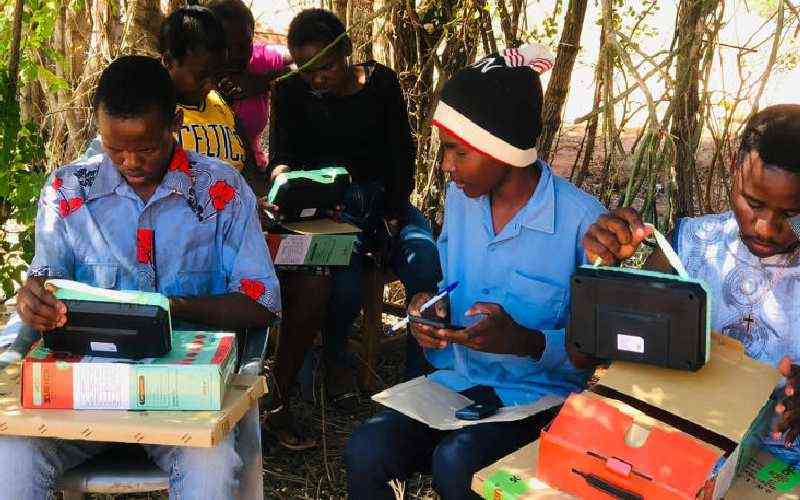×
The Standard e-Paper
Home To Bold Columnists

Outside the cluster of mud-walled houses, in the pitch darkness, two dogs play. Apart from their occasional yelp, the night is deathly quiet. Beyond the fence, made up of haphazardly crisscrossed sticks, there could be elephants or even lions. In this village of Nthunguni, in Mtito Andei, animals roam freely at night.
The 22-year-old Juma Kilumo appears from one of the houses, torch in mouth, a new tablet and bulbs in hand.